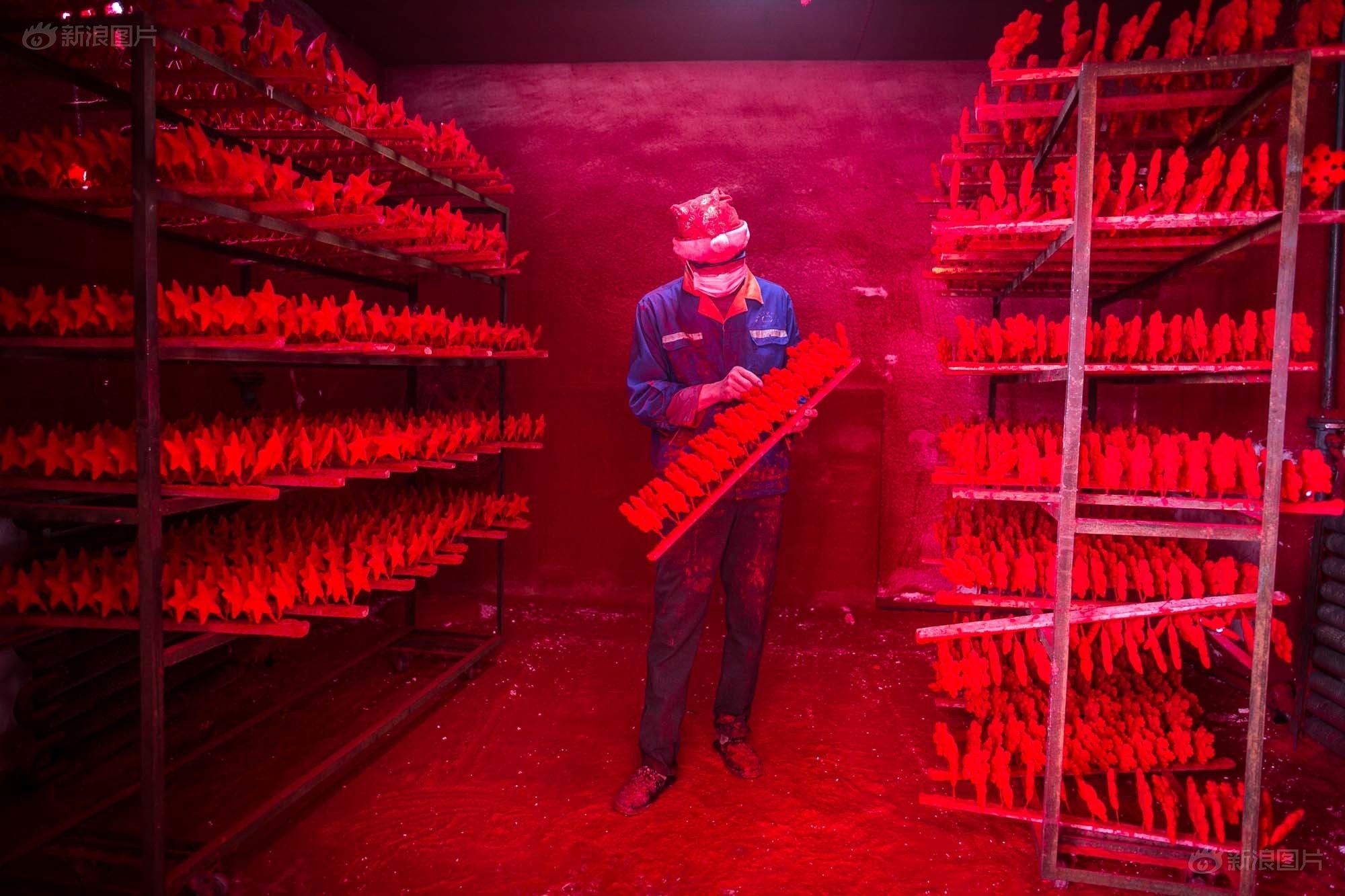XUE QIANCHUN
34, CHONGQING
“We got married in 1999 and decided to try the city,” says Chongqing native Xue Qianchun. Her son was born in 2001, and two years later she gave up her job in a hotel to become an ayi so she could spend more time looking after him.
Xue had worked as a street sweeper and on the production line of a factory before the hotel. “None of them gave me the satisfaction I have now,” she says. “You rise early and go to bed late. You feel tired all the time. Days pass really fast but you are not learning anything.”
She says working as an ayi provides her with opportunities for self-improvement otherwise unavailable to her. “I don’t have a high school diploma, nor am I good-looking, so I could never make it to management level. As an ayi I can learn about different cultures and cook different dishes. It is really interesting for me. Getting to learn foreign languages is a great bonus.”
It wasn’t all positive when she started out though. “Some employers can be a bit picky. They may run their finger over every spot just cleaned, as if they don’t trust you. I cried a few times when I first got into the work, when I got tired or was misunderstood. But I soon learned to take it easy. It’s my job and people pay me to do things perfectly.”
She says she also found hugging a bit embarrassing at first. “For us Chinese, it’s a gesture only between intimates. Then I learned it is a common way for Westerners to express respect and care, so I soon got used to it.”
As for her general impression of the expats she has worked for, she says they are “usually broad-minded and enjoy life. They are often optimistic, acting as if they have endless energy every day. They keep learning and learning. I also like the way they educate their children. They give the kids more freedom. They hide their care inside so the kids can grow to be independent.”
Xue says she has grown close with some of the children of her employers. “Sometimes they ask me to keep secrets for them, and I’m happy to if there is nothing unsafe for them. Usually it’s no big deal — they have snuck a bite of chocolate or spat on the street. I tell them that it is not good, and they will plead with me not to tell their mothers and promise me it’s the last time.
“I’m happy to make friends with the kids. Parents sometimes want me to help the kids practice Chinese, so we spend a lot of time together. I love them just the way I love my child.”
Xue says she ends up spending more time with other people’s kids than her own. “I can only see my son for a short while in the morning and in the evening. But it’s not too bad. My son has become more independent. The pros and cons are always in balance. He knows that my spending less time with him doesn’t mean I love him less. We are very close.”
Her own living conditions are rather different from those of her clients – her family of three live in a small room with a shared kitchen and toilet. They wash their clothes by hand. Xue says she gets a lot of support from her husband though.
“He really takes good care of me. Since I am out at work all day doing chores for others, he found a job as a night watchman, working 9pm to 7am. He has the supper done when I get home and has most of the housework taken care of. We form a good partnership and make sure our son’s schedule doesn’t get affected. And we have a really good boy.
“Now that we’ve chosen to live here, we cooperate and work hard to make it work. A small number of natives may speak to us with discrimination and call us waidiren (out-of-towners), but I don’t get upset by that. I’m an honest worker here and I’m happy, so I feel totally equal with the locals.”
Xue says fellow Chinese people sometime treat her differently in her job though. “I worked for one lady who would mock me when she felt I had dressed up. Chinese employers are more likely to treat us as inferior. But I have a theory: those who look down upon maids are actually looking down upon themselves. Why? You hire maids to do housework because you are rich. But what if some day you are not rich any more? Your mom and your wife do the work. Are you going to see them as low people?”
She says she feels she has a responsibility to remain upbeat. “My work is not just physical work. My mental condition is pretty important in my job too. I never show my employer a sleepy or end-of-world face. They should be happy to see me. I often put myself in other people’s shoes to consider things. If I got rich some day in the future and I hired an ayi, would I like to see her coming in with such a face? No. So I always show the best me.”
As for getting rich in the future, Xue has a dream. “Since I’m good at cooking, we are thinking about opening a restaurant. I’ve always been an expert at Sichuan dishes, and during my ayi career I have learned Shanghai dishes, Thai dishes and many Western dishes. Like cultures, food is something you never finish learning.”
The dream remains in the distance for now though. “Maybe in 10 years we’ll make it. My husband and I make about RMB8,000 a month, but we can’t save much. We also have a housing loan to pay back in my hometown. It is RMB1,700 per month for 20 years. We have 17 years to go.”
She says the idea of owning a home back in Chongqing is an important one. “People of my age leading a vagrant life far from home need to own a place back there. We need to know we have a place to spend the rest of our life. How terrible would it be if we had to return to Chongqing in 20 years and we didn’t have anything? After a tiring day’s work, it is a great comfort to know that one day, when we can no longer work, there is a place we can go and rest.”
For now she says the family are happy where they are. “We often take one day of the weekend off and go out together, to enjoy life. That is something I learned from the families I work for. I also learned to give my boy enough space. There are few people who are number one; I only want him to be happy. He has already achieved more than I expected.”
AYI CAN DO IT(Ⅳ)
 By prdintern001, September 5, 2013
By prdintern001, September 5, 2013
more news
This Day in History: The Marco Polo Bridge Incident
On July 7, 1937, the cataclysmic event that led to the start of the Second Sino-Japanese War.
PHOTOS: Take a Look at the Real Santa's Workshop
How your Christmas decorations are made.
Useful Mandarin Phrases: Thanksgiving
A list of essential Thanksgiving phrases to help you through the classic American holiday!
This Day in History: China Star Li Ning Shines at 1984 Olympics
Defying a Soviet Union-led boycott, Li Ning earns the nickname Prince of Gymnasts.
This Day in History: China Ends the Eunuch Era
Finally banned in 1924, the system had endured for over 3,000 years and through 25 dynasties.
New Film 'The Six' Tells Untold Titanic Chinese Survivors' Story
Arthur Jones' new documentary gets nationwide release this Friday.
Relax and Rejuvenate on 2-Day Wellbeing Journey Ayurveda
3 elemental experiences.
It’s Now Yangmei Season in China, Here’s What You Need to Know
Here’s what you need to know about China’s popular summer fruit.
In Case You Missed It…
We're on WeChat!
Scan our QR Code at right or follow us at ThatsGuangzhou for events, guides, giveaways and much more!

7 Days in Guangzhou With thatsmags.com
Weekly updates to your email inbox every Wednesday




















0 User Comments